10 riders to watch at the 2021 Vuelta a España
Roglič chases a third win, Carapaz and Mas roll on to challenge while Bernal, Adam Yates and Vlasov come in from the wings
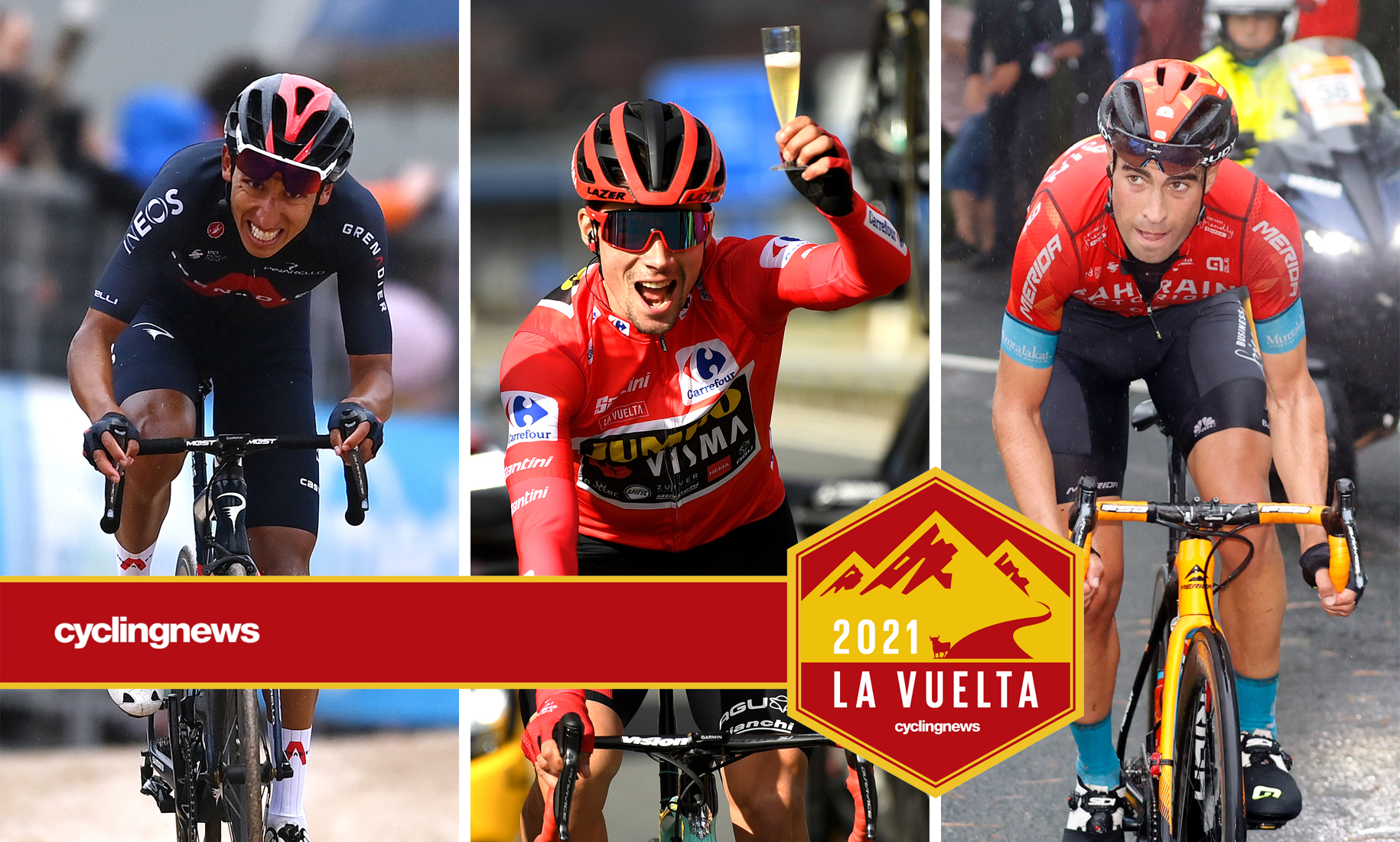
The Vuelta a España’s position on the calendar makes it the least predictable of the Grand Tours. While the form line ahead of the Tour de France is usually relatively clear, the lie of the land tends to be more muddled ahead of the Vuelta, where the disparate list of contenders approach the race from a variety of angles.
Men like Richard Carapaz, Guillaume Martin and Enric Mas have scarcely had a respite since completing the Tour, while Egan Bernal and Aleksandr Vlasov have been waiting in the wings since the Giro d’Italia in May and Adam Yates has been spared the rigours of Grand Tour racing altogether thus far in 2021.
Defending champion Primož Roglič, meanwhile, arrives at the Vuelta after enduring further disappointment at the Tour, and the Slovenian looks the man most likely to carry the maillot rojo to Santiago de Compostela again, but this race has thrown up unexpected twists in its current late summer slot, even if Chris Horner in 2013 was the last truly left-field winner. Still, the path to the maillot rojo never runs smooth, as Roglič discovered en route to victory in the past two years. The list of danger men is always longer than you think.
Primož Roglič (Jumbo-Visma)
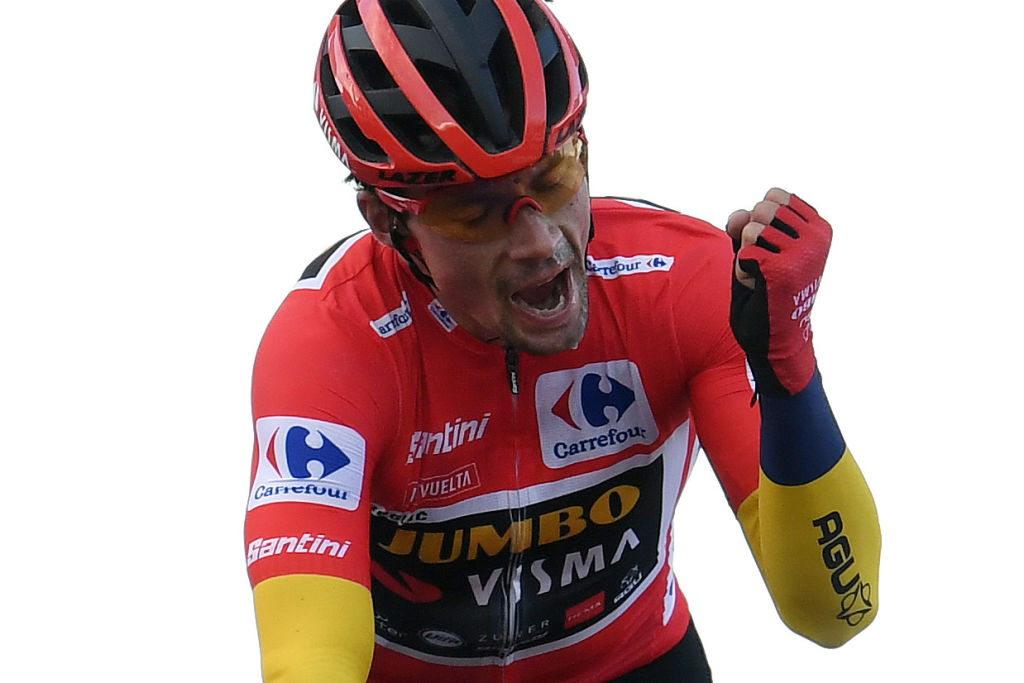
Last November, the friendly confines of the Vuelta offered Roglič a shot at redemption after his traumatic defeat at the Tour de France. This time out, the race provides the Slovenian with something of a do-over after his Tour challenge was ruined by an earlier crash in France.
Like at Liège-Bastogne-Liège last Autumn, Roglič has already responded to Tour disappointment with a major victory, taking gold in the time trial at the Tokyo Olympics, and he will line up in Burgos as a logical favourite. He might have preferred the 33 kilometre time trial to come rather earlier than the final day, but then Roglič is not reliant upon his strength in the discipline to win here. Sepp Kuss and Steven Kruijswijk will offer robust support, and so Jumbo-Visma’s ability to control affairs in the mountains coupled with Roglič’s rare gifts of acceleration in the final kilometre means that he can take red early and gradually erode his rivals’ morale as the race progresses.
Egan Bernal (Ineos Grenadiers)
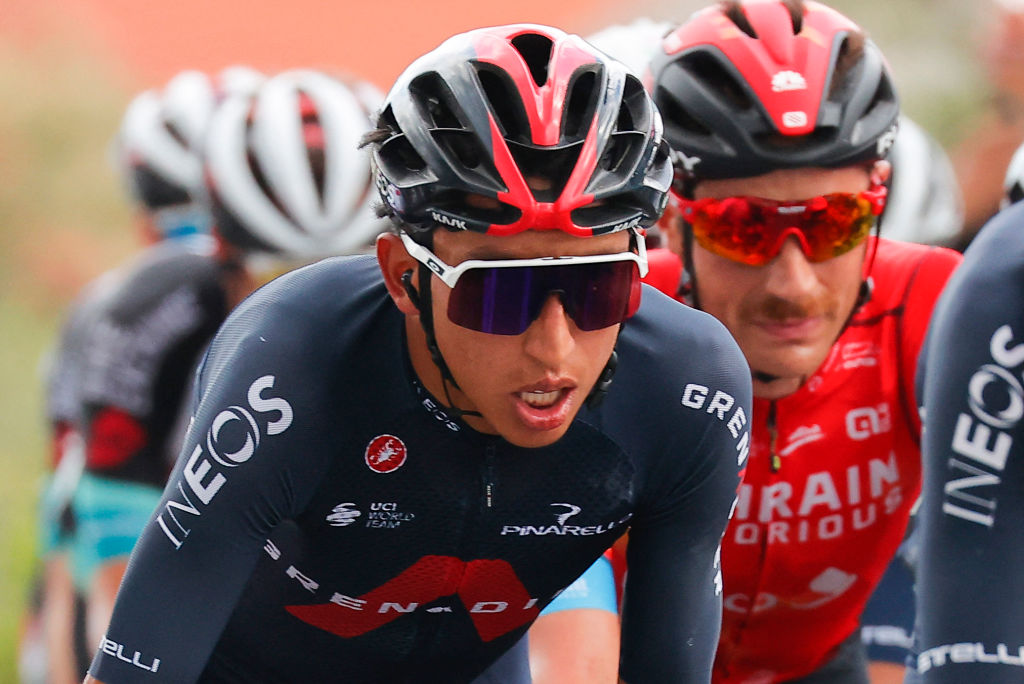
Bernal’s mild wobble in the final week of the Giro d’Italia should perhaps be placed in the context of his subsequent COVID-19 diagnosis and it certainly shouldn’t obscure just how dominant he was across the first two weeks of the race. From Turin to Cortina, Bernal’s supremacy across every type of climb and terrain brooked no argument. The problems, both physical and mental, that beset him after his 2019 Tour victory looked to have been excised.
The Colombian returned to stage racing action at the Vuelta a Burgos last week, and his 4th place finish in the final stage to Lagunas de Neila suggested a man working his way into form ahead of the Vuelta, where there will be an early test at Picon Blanco on stage 3. That climb could set the tone for Bernal and Ineos’ Vuelta. With Richard Carapaz, Adam Yates and Pavel Sivakov all in the team, Ineos have at least four potential GC leaders at their disposal. Still, Bernal’s pedigree surely makes him the outstanding candidate, as he seeks to emulate Eddy Merckx, Giovanni Battaglin and Alberto Contador to become only the fourth man to achieve the Giro-Vuelta double.
Get The Leadout Newsletter
The latest race content, interviews, features, reviews and expert buying guides, direct to your inbox!
Richard Carapaz (Ineos Grenadiers)
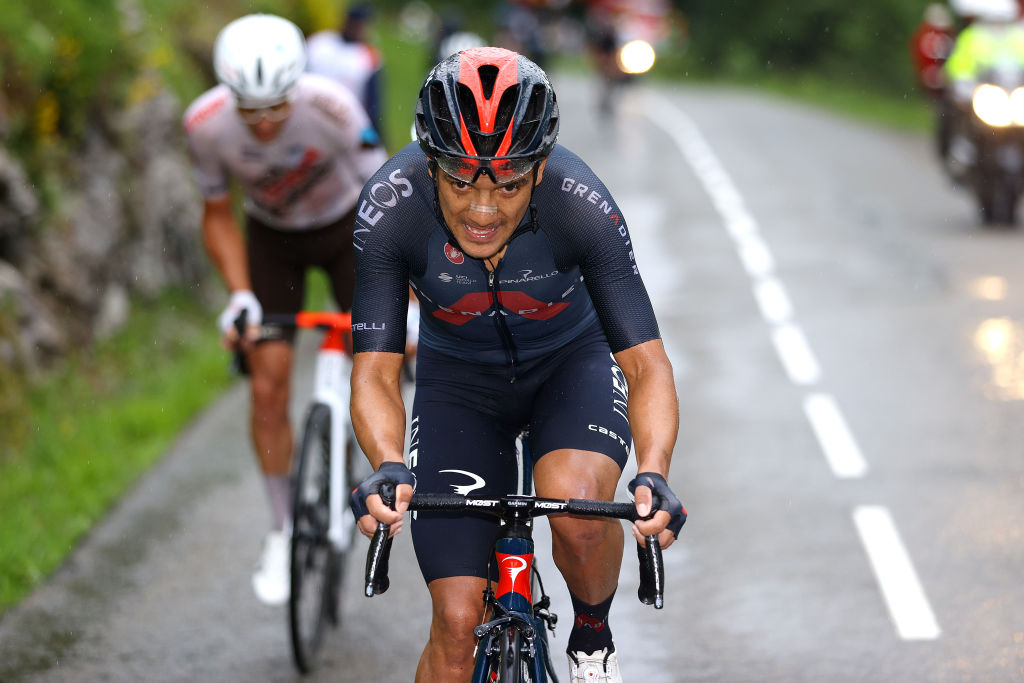
Adam Yates was held back from the Tour to prepare for the Vuelta and Sivakov will have a point to prove after a crash ended his Giro prematurely, but on both pedigree and form, Carapaz looks like Ineos’ most likely contender should Bernal falter. While Ineos’ four-pronged challenge proved rather blunt at the Tour, the Ecuadorian battled gamely to finish on the podium and he underscored his condition with a canny victory in the Olympic Games road race the following week.
Given the quick turnaround, it remains to be seen how heavily those exertions will weigh on Carapaz’s legs, though he managed the Tour-Vuelta combination well last Autumn, placing second overall and almost denying Roglič red at the death on the Covatilla. Carapaz’s aggressive style might dovetail more smoothly with Bernal than it did with the other members of the Ineos quadrumvirate in July.
Mikel Landa (Bahrain Victorious)
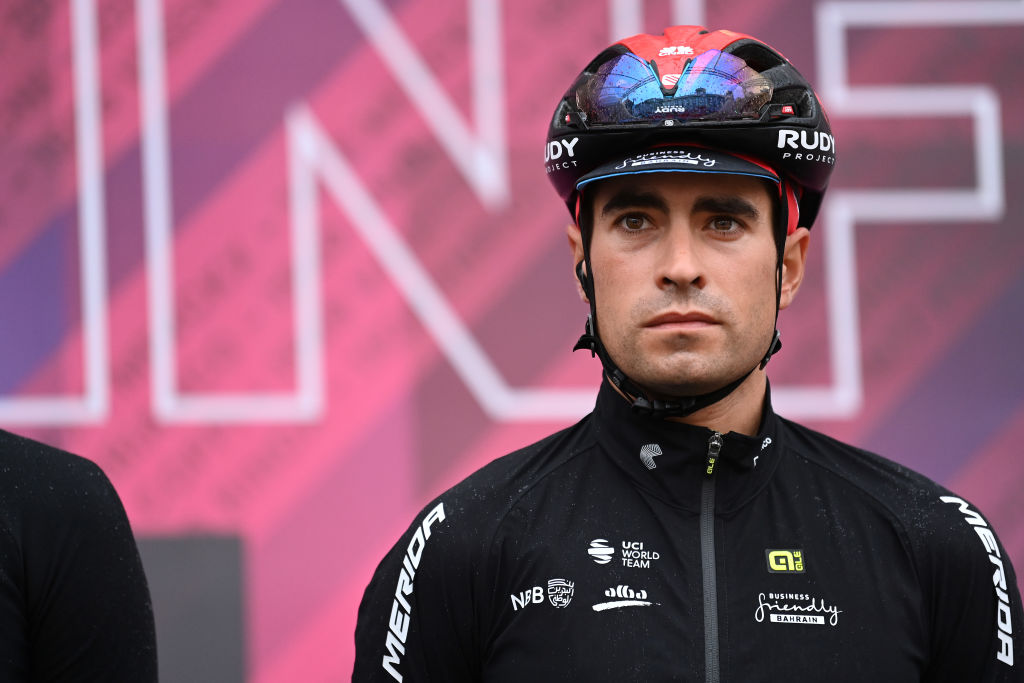
Hope certainly springs eternal for Landa, who arrives at the Vuelta buoyed by his overall victory at the Vuelta a Burgos. His Bahrain Victorious squad has enjoyed a remarkable purple patch since late spring, and one wonders what might have been at the Giro had Landa – so impressive at Sestola – not crashed out on stage 5. In his absence, Damiano Caruso placed second overall and the Sicilian will race with ambition in Spain, but Landa is surely the team’s number one option.
At 31 years of age and with men almost a decade his junior beginning to exert their dominance, Landa is running out of opportunities to deliver the Grand Tour victory he has been threatening since Astana ordered him to wait for Fabio Aru on the road to Sestriere at the 2015 Giro. Landa’s Grand Tours have often followed a familiar narrative arc whereby he digs himself into a hole early on and then endeavours to claw his way out of it thereafter. It makes for compelling drama but it’s no recipe for overall success. The Basque, one of cycling’s great entertainers, will hope for an opening week with no alarms and no surprises, and then aim to take advantage of what has been described as the most demanding third week in Vuelta history.
Hugh Carthy (EF Education-Nippo)
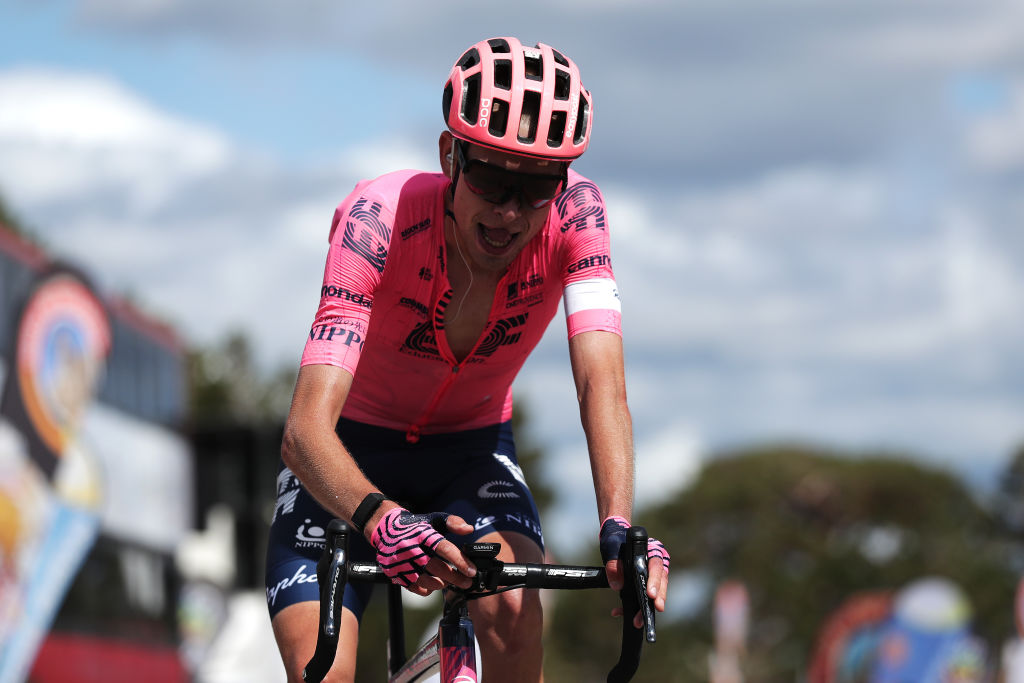
Third overall at last year’s Vuelta marked a watershed for moment for Carthy, who married race-long consistency to his acknowledged gifts as a climber. He underlined his increasing comfort in the role of team leader at this year’s Giro, where he was quietly nurturing ambitions of overall victory as the race entered its third week. Although Carthy eventually slipped to 8th overall in the Giro’s dying days, the experience will surely stand him in good stead.
This Vuelta, with its nine summit finishes, will surely be to his liking, and Carthy looked to be in crescendo at the recent Vuelta a Burgos, where he impressed in claiming victory on the final stage to Lagunas de Neila. He will have Rigoberto Urán for company in the EF-Nippo team, with the Colombian looking to bounce back after his Tour podium challenge evaporated suddenly in the Pyrenees.
Romain Bardet (Team DSM)
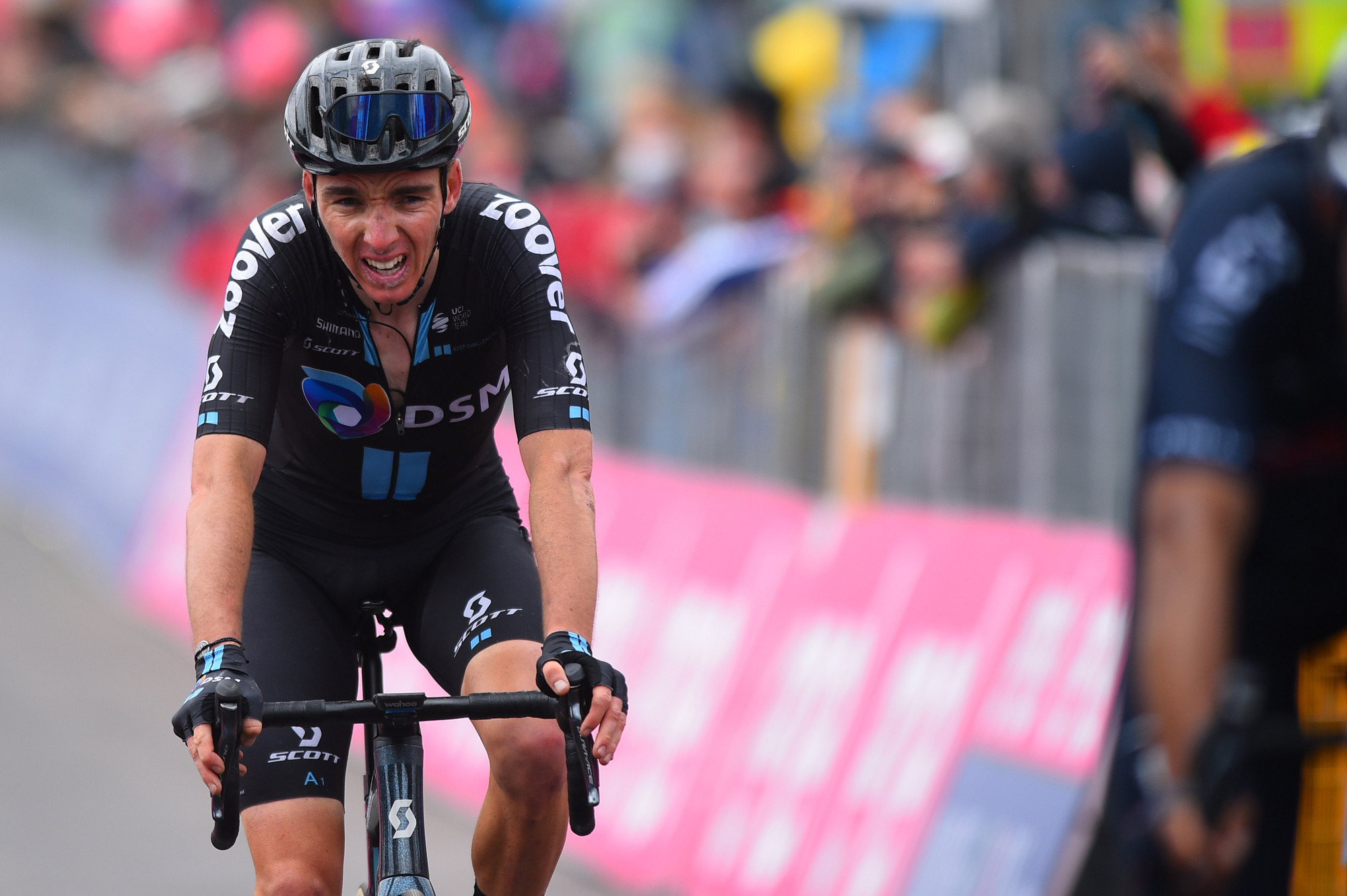
The Vuelta a Burgos proved rather inconclusive for Bardet, who looked poised to claim only the second stage race win of his career after he soloed to an assured victory over Picon Blanco on stage 2. The Frenchman shipped over a minute at Lagunas de Neila on the final stage, however, it appears that he may still have been suffering the effects of his crash en route to that victory two days previously.
Bardet was originally due to set out as DSM’s co-leader alongside Jai Hindley, but the Australian was withdrawn from the selection last week. DSM have struggled for results this season, but Bardet has at least been consistent and he was aggressive at the Giro. His longstanding weakness against the watch cost him a top-five finish there, however, and they might place a ceiling on his ambitions here.
Aleksandr Vlasov (Astana-Premier Tech)
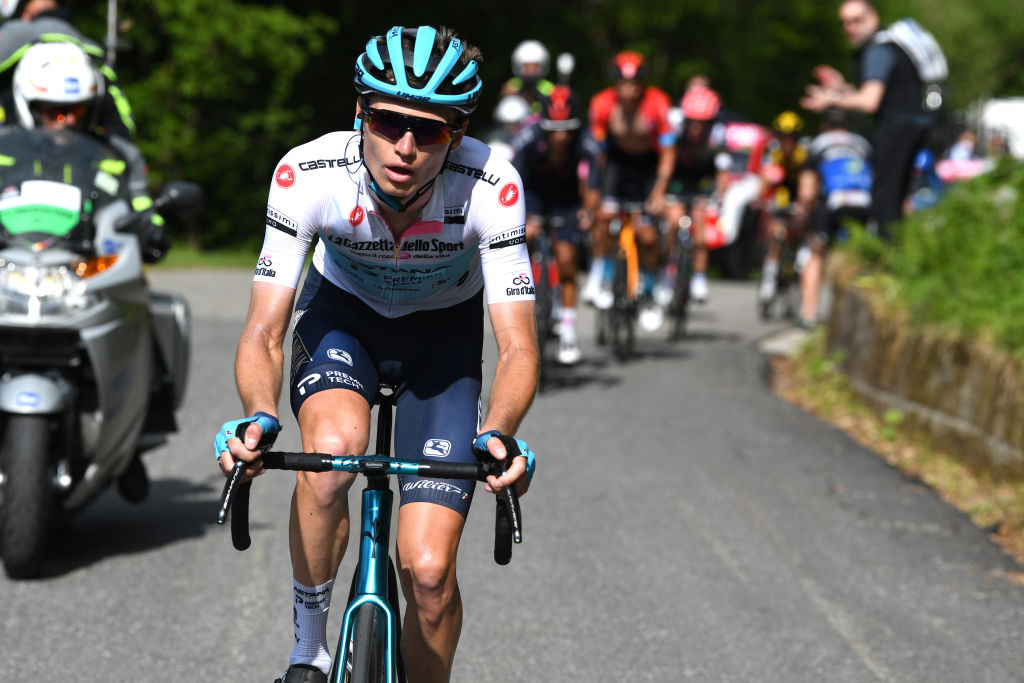
Vlasov’s long touted departure to Bora-Hansgrohe was confirmed on Monday but the Russian will sign off on his two-year tenure at Astana at this Vuelta, where he will set out with ambitions of a podium finish – or perhaps more – after placing fourth overall at the Giro. Right up to the moment he got in a flap removing his jacket on the Passo Giau, Vlasov looked primed to be Bernal’s biggest challenger, but the accumulated fatigue took its toll in the final week and the podium gradually slipped out of his grasp.
Still, that was only the second complete Grand Tour of Vlasov’s career – he placed 11th at last year’s Vuelta after abandoning the Giro on stage 2 – and it highlighted his undoubted potential in three-week racing. His current form, however, is a little less certain. He was well off the pace at the Tokyo Olympics and he was relatively subdued in Burgos too, but it may be that he has tailored his approach to the Vuelta differently after his third week decline at the Giro.
Fabio Aru (Qhubeka-NextHash)

It’s been quite some time since the 2015 Vuelta winner was considered a contender at a Grand Tour and the thought would have seemed fanciful in the extreme as recently as June, when he withdrew himself from Qhubeka’s Tour squad after a disastrous outing a the Italian Championships and found himself again batting away questions about whether he was tempted to retire from cycling altogether.
Since then, Aru has quietly produced his best results since leaving Astana at the end of 2017, taking second overall at the 2.1 Sibiu Tour and then replicating that display in rather more august company at the Vuelta a Burgos. Given his recent travails in Grand Tours – he finished just two of five since leaving Astana, with his best showing a very distant 14th at the 2019 Tour – it’s hard to imagine Aru making an impression against Roglič, Bernal et al here, but his status as a past winner makes his story worth following at this Vuelta.
Enric Mas (Movistar)
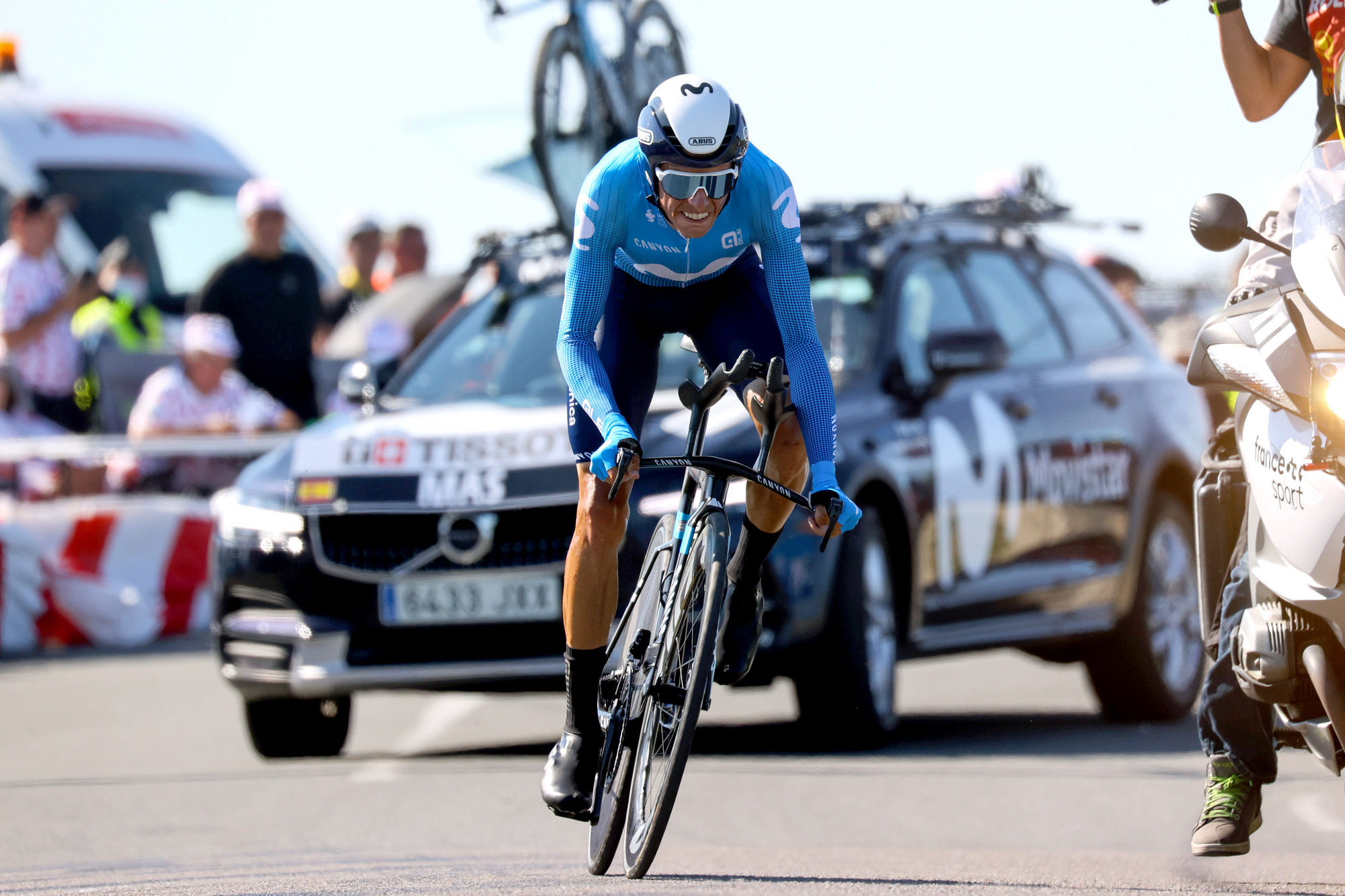
Another Grand Tour and another triumvirate for Movistar, who have Mas, Miguel Angel López and Alejandro Valverde in their line-up for this Vuelta. It’s certainly provides a narrative worthy of a Netflix series, but it remains to be seen whether it can provide the Spanish squad with their first overall victory in the race since Nairo Quintana carried red to Madrid five years ago.
Mas looked to be the coming man of Spanish cycling when he placed second overall behind Simon Yates at the 2018 Vuelta, but he hasn’t quite scaled the same heights since. He has, however, been quietly consistent since he swapped QuickStep for Movistar at the start of last season, placing fifth at both the Tour and Vuelta last year and sixth in France this July. It’s difficult to envisage him troubling an on-form Roglič or Bernal, but if the race opens up, his ability to stay the course – allied to Movistar’s ostensible strength in numbers – could carry him further than most.
Miguel Angel López (Movistar)
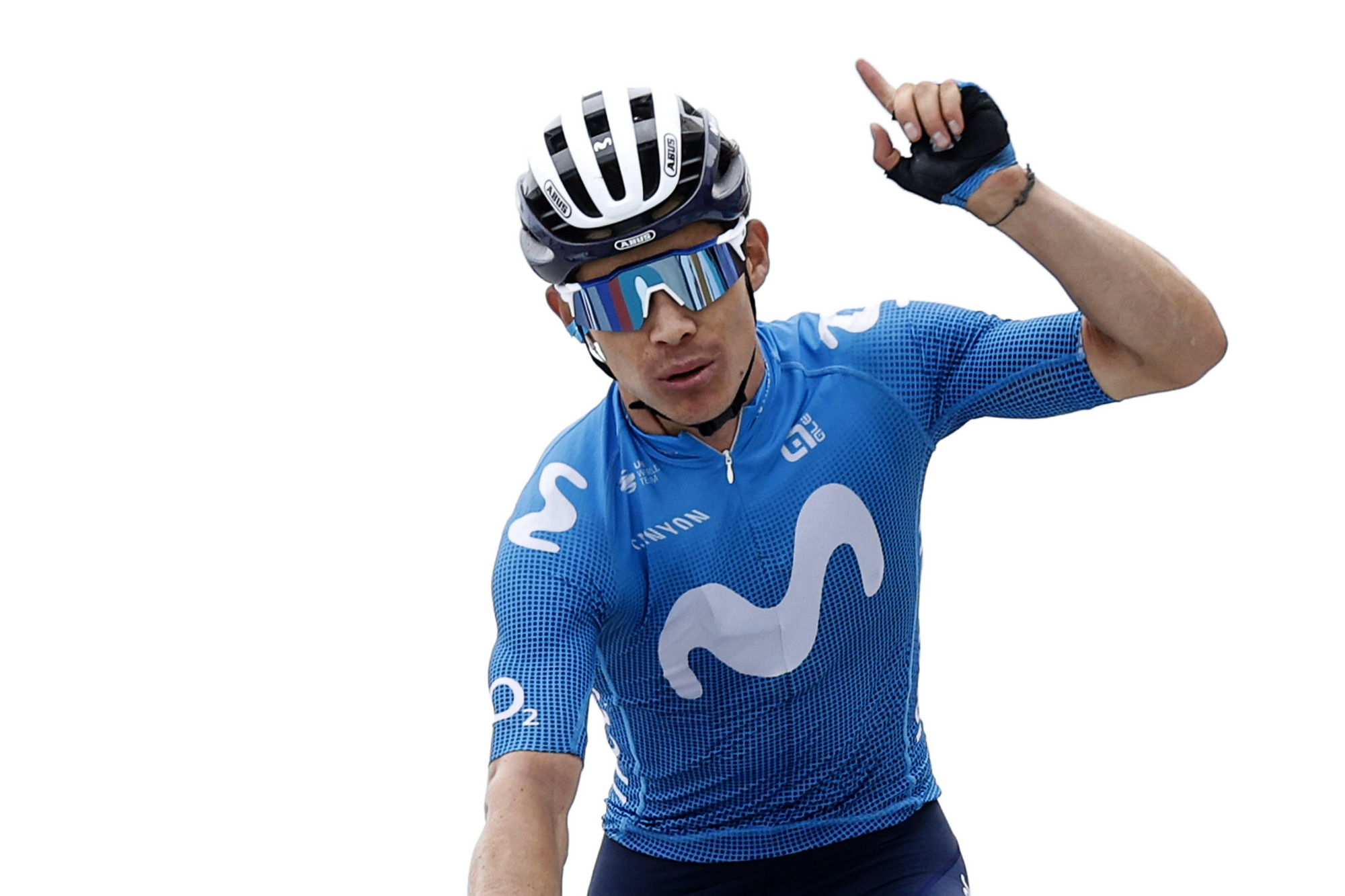
Valverde provides greater guarantees but López offers the wilder potential, particularly on a course with so many summit finishes. The Colombian, on a one-year deal at Movistar, has had a rather mixed season thus far. COVID-19 delayed the start of his campaign until the Tour de Romandie, but he hit his stride in May and June, winning the Ruta del Sol and Mont Ventoux Dénivelé Challenge in quick succession, and then placing 6th at the Critérium du Dauphiné.
His Tour challenge unravelled due to early crashes, however, and he abandoned the race in the third week. He hasn’t competed since and the state of his form is something of an unknown. Then again the Vuelta, as Banesto manager José Miguel Echavarri once said, is for those for who fail in July, and López sets out from Burgos with a point to prove. The final time trial will penalise López here, as it did at the 2020 Tour, but it might also encourage extreme aggression.

Barry Ryan was Head of Features at Cyclingnews. He has covered professional cycling since 2010, reporting from the Tour de France, Giro d’Italia and events from Argentina to Japan. His writing has appeared in The Independent, Procycling and Cycling Plus. He is the author of The Ascent: Sean Kelly, Stephen Roche and the Rise of Irish Cycling’s Golden Generation, published by Gill Books.